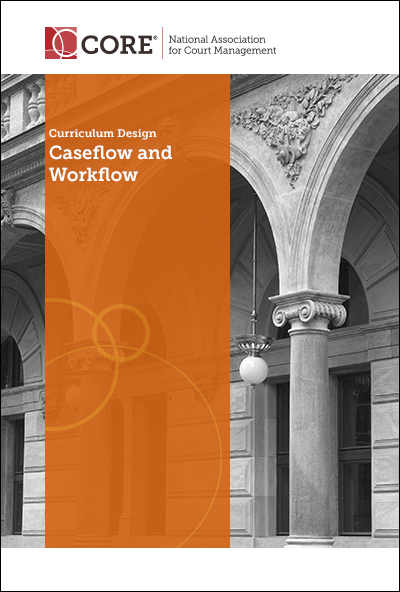Caseflow and Workflow
Curriculum
Caseflow and Workflow
This curriculum design is suitable for a broad audience including elected and appointed court managers and staff with court wide and departmental responsibilities as well as leadership judges from every jurisdiction and type of court. This content may be best suited for learners who have some experience in the courts. The best class composition is a mix of court managers and judges from similar jurisdictions and types of courts.
Caseflow Management is the process by which courts carry out their primary function of moving cases from filing to disposition. The management of caseflow is critical because it helps guarantee every litigant receives procedural due process and equal protection.
Workflow Management involves the coordination and support of all tasks, procedures, resources (human and other) necessary to guarantee the work of the court is conducted efficiently and is consistent with the court’s purposes and responsibilities.
While Workflow Management includes Caseflow Management, it also includes all tasks and functions necessary for the court to operate as an organization.
The following learning objectives are designed for a comprehensive course on caseflow and workflow.
As a result of this education, court managers will be able to:
-
- Identify individual learning needs and objectives related to caseflow management;
-
- Define the purpose of courts;
-
- Identify the universal and distinguishing characteristics of local legal cultures;
-
- Map caseflow from a systemic perspective;
-
- Evaluate the culture of public access with a focus on self-represented litigants;
-
- Complete a detailed, systemwide evaluation of caseflow management strengths and weaknesses;
-
- Use a structured analysis to create the elements of a differentiated case management plan;
-
- Evaluate caseflow time standards as a key performance measure;
-
- Apply high level diagnosis to determine caseflow management performance;
-
- Identify calendaring systems and how judges use case management plans and orders to manage cases;
-
- Assess postponement policies and practices; and
-
- Create a focused action plan for specific caseflow management changes.

